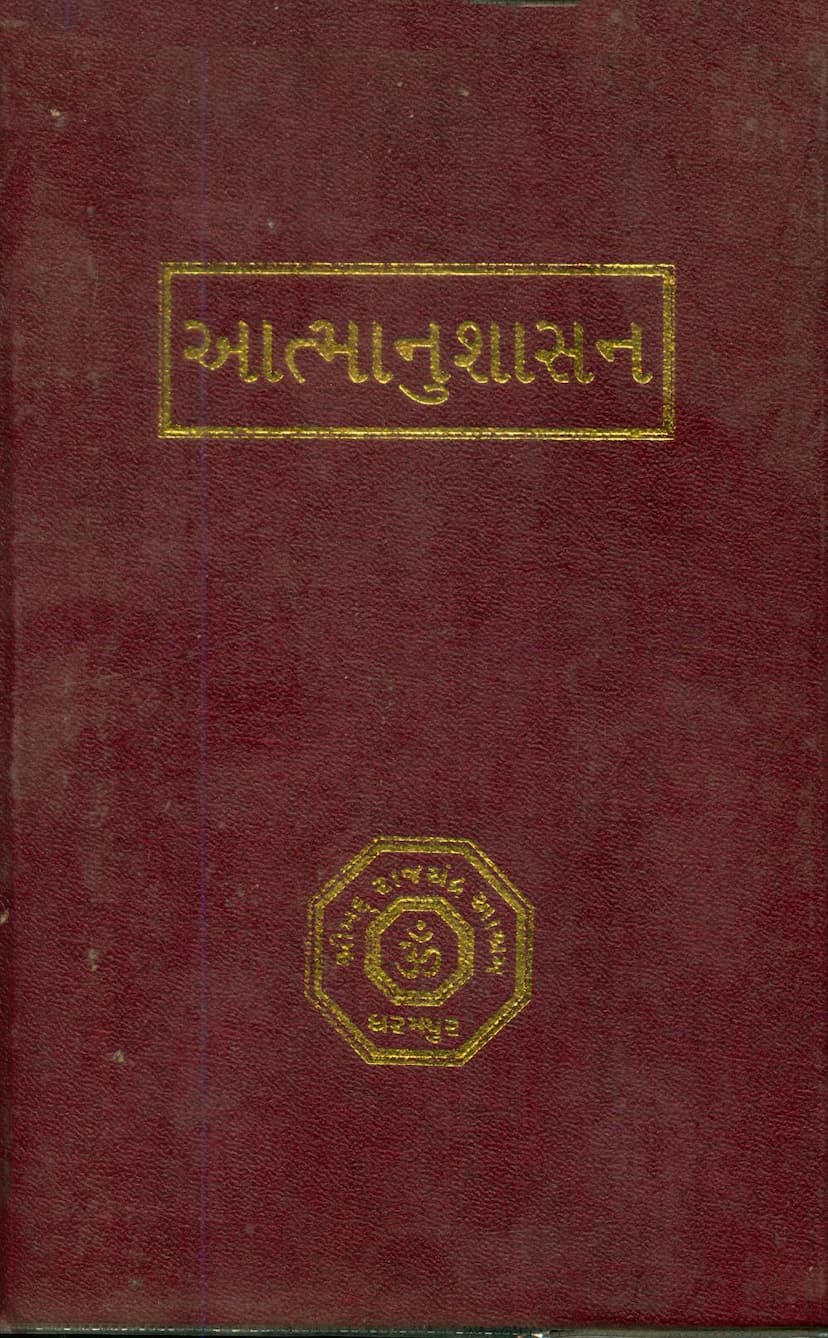Aatmanushasan
Added to library: September 1, 2025

Summary
Based on the provided text, here's a comprehensive summary of the Jain text "Aatmanushasan" by Gunbhadraswami:
Title: Aatmanushasan (Self-Discipline/Guidance) Author: Acharya Gunbhadraswami Publisher: Shrimad Rajchandra Ashram, Dharampur Catalog Link: https://jainqq.org/explore/007252/1
This document is a Gujarati translation and commentary on the Jain text "Aatmanushasan" authored by the revered Acharya Gunbhadraswami. The publication is dedicated to promoting spiritual learning and practice, as evidenced by the introductory sections that highlight the work of the Shrimad Rajchandra Ashram and its spiritual guidance.
Key Themes and Content:
The "Aatmanushasan" is presented as a profound spiritual treatise focused on achieving liberation (moksha) through self-discipline and adherence to the Jain path. The text, originally authored by Gunbhadraswami, a distinguished scholar and ascetic of the 9th-10th century Vikram Samvat, is highly regarded and was frequently recommended for study by Paramkrup<bos> Shrimad Rajchandraji.
The summary reveals that the text delves into various aspects of Jain philosophy and practice, offering guidance on:
- The Nature of the Soul and Reality: It emphasizes understanding the true nature of the self (soul) and its distinction from the non-self (body, worldly possessions, etc.).
- Detachment (Vairagya): A core theme is the cultivation of detachment from worldly pleasures and possessions, which are depicted as transient and ultimately sources of suffering.
- Ethical Conduct and Virtues: The text details the importance of right faith (Samyakdarshan), right knowledge (Samyakgnan), and right conduct (Samyakcharitra). It discusses various virtues and their role in spiritual progress.
- Control of the Senses and Passions: A significant portion is dedicated to the necessity of controlling the senses (indriya-nigrah) and subduing passions like anger (krodh), ego (maan), deceit (maya), and greed (lobh).
- Spiritual Practices: The text encourages practices such as meditation (dhyan), austerity (tapas), study of scriptures (shrut), and virtuous actions (dharma) as means to purify the soul.
- The Path to Liberation: It outlines the spiritual journey, highlighting the stages of progress and the ultimate goal of achieving the pure, unattached state of the soul, free from the cycle of birth and death (samsara).
- The Role of a Guru: The importance of a qualified spiritual guide (guru) is stressed, outlining the qualities of an ideal teacher and the disciple's commitment.
- The Impermanence of Life and Worldly Matters: The text repeatedly underscores the transient nature of the body, wealth, relationships, and life itself, urging readers to focus on eternal truths and spiritual pursuits.
- Consequences of Actions: It elaborates on the principle of karma, explaining how actions lead to consequences, both in this life and in future births, emphasizing the importance of virtuous actions.
- Overcoming Delusion and Ignorance: A major focus is on dispelling ignorance (ajnan) and delusion (moha), which are seen as the root causes of suffering and bondage.
Structure and Presentation:
The document includes:
- Original Sanskrit verses: The text presents the original verses of "Aatmanushasan."
- Gujarati Verse Translation: A poetic translation of the verses into Gujarati is provided.
- Commentary (Bhavarth): A detailed explanation and commentary in Gujarati elucidate the meaning and significance of each verse.
Context of Publication:
The publication by Shrimad Rajchandra Ashram in Dharampur, Gujarat, indicates a commitment to making profound spiritual texts accessible. The preface mentions that this particular study was undertaken as part of the annual observance of the Paryushan festival, a significant period of introspection and spiritual practice for Jains. The Ashram's efforts aim to guide seekers on the "pure path to liberation" as elucidated by Paramkrupಾದevu Shrimad Rajchandraji, who himself held "Aatmanushasan" in high esteem.
In essence, "Aatmanushasan" serves as a spiritual guide, offering practical advice and philosophical insights to help individuals overcome worldly attachments, cultivate inner virtues, and ultimately achieve liberation through self-mastery and devotion to the path of righteousness.